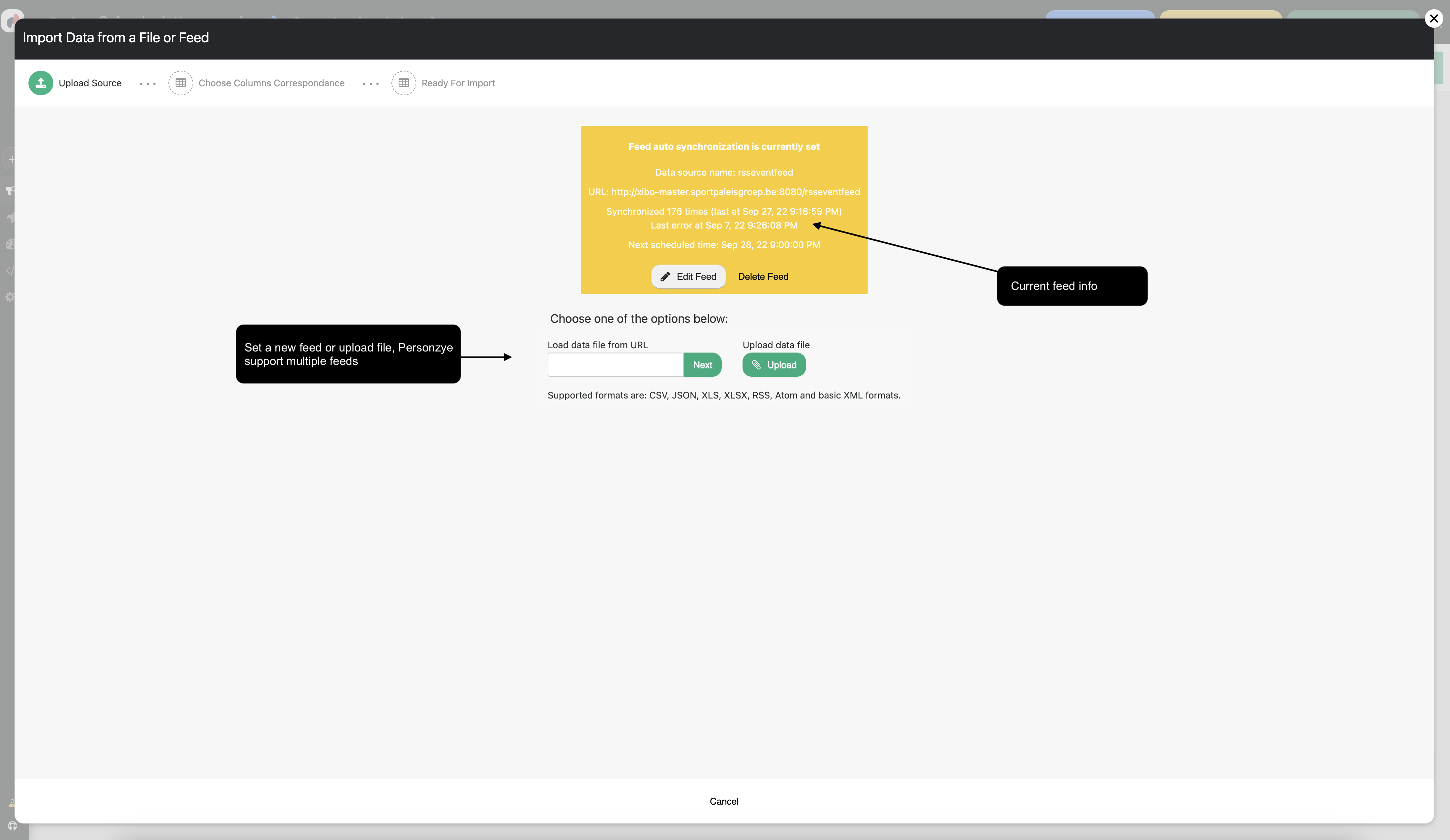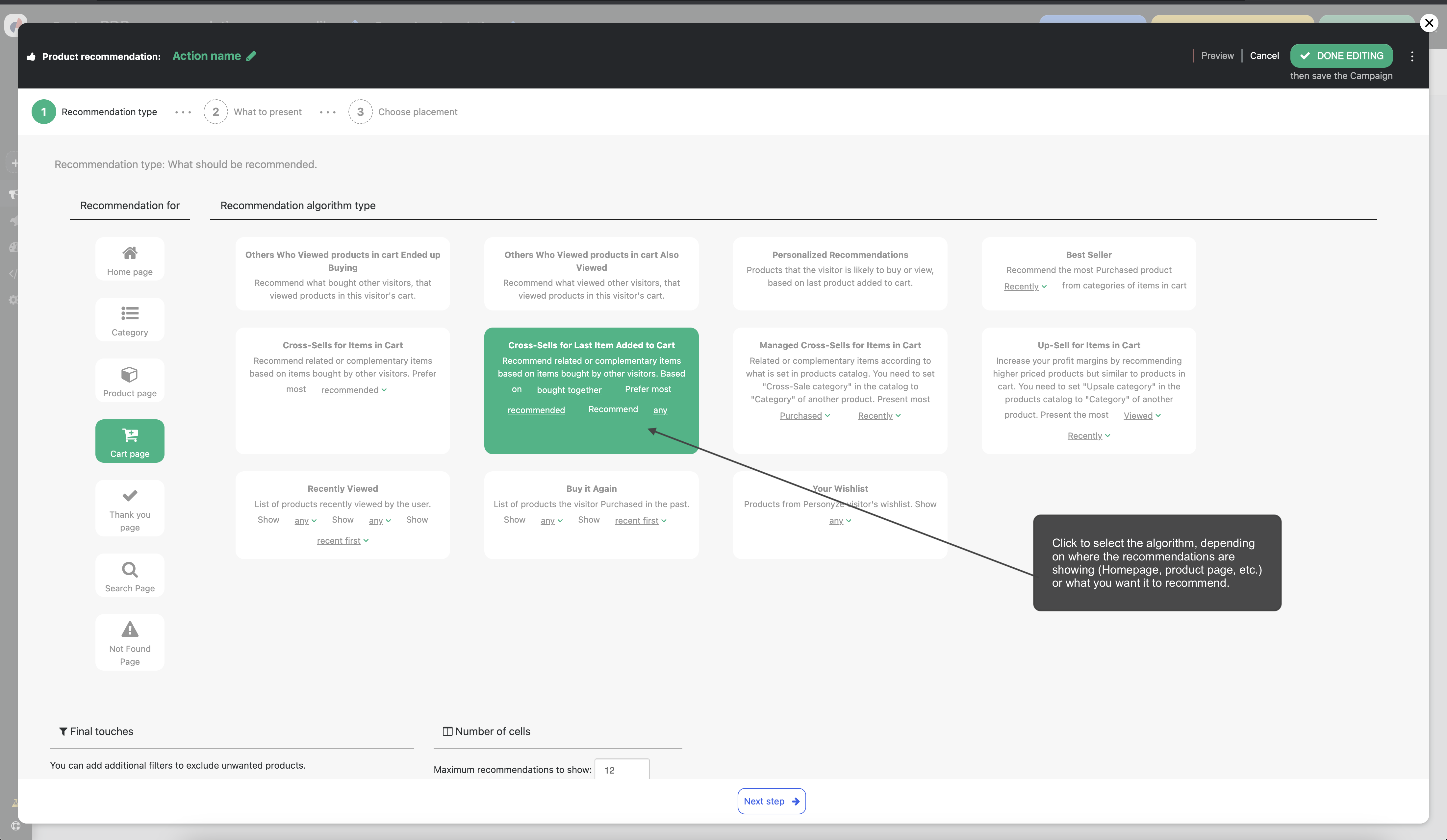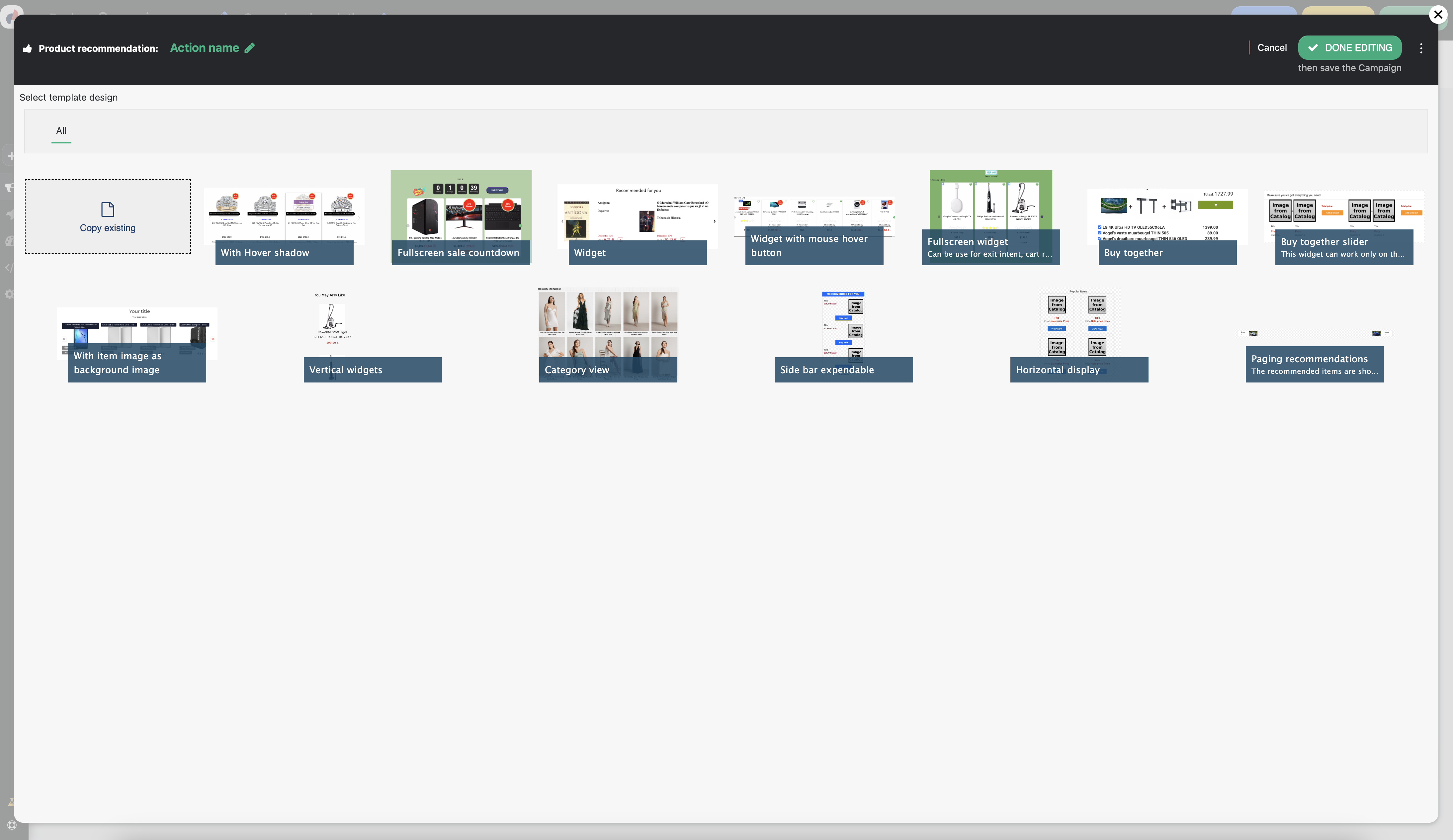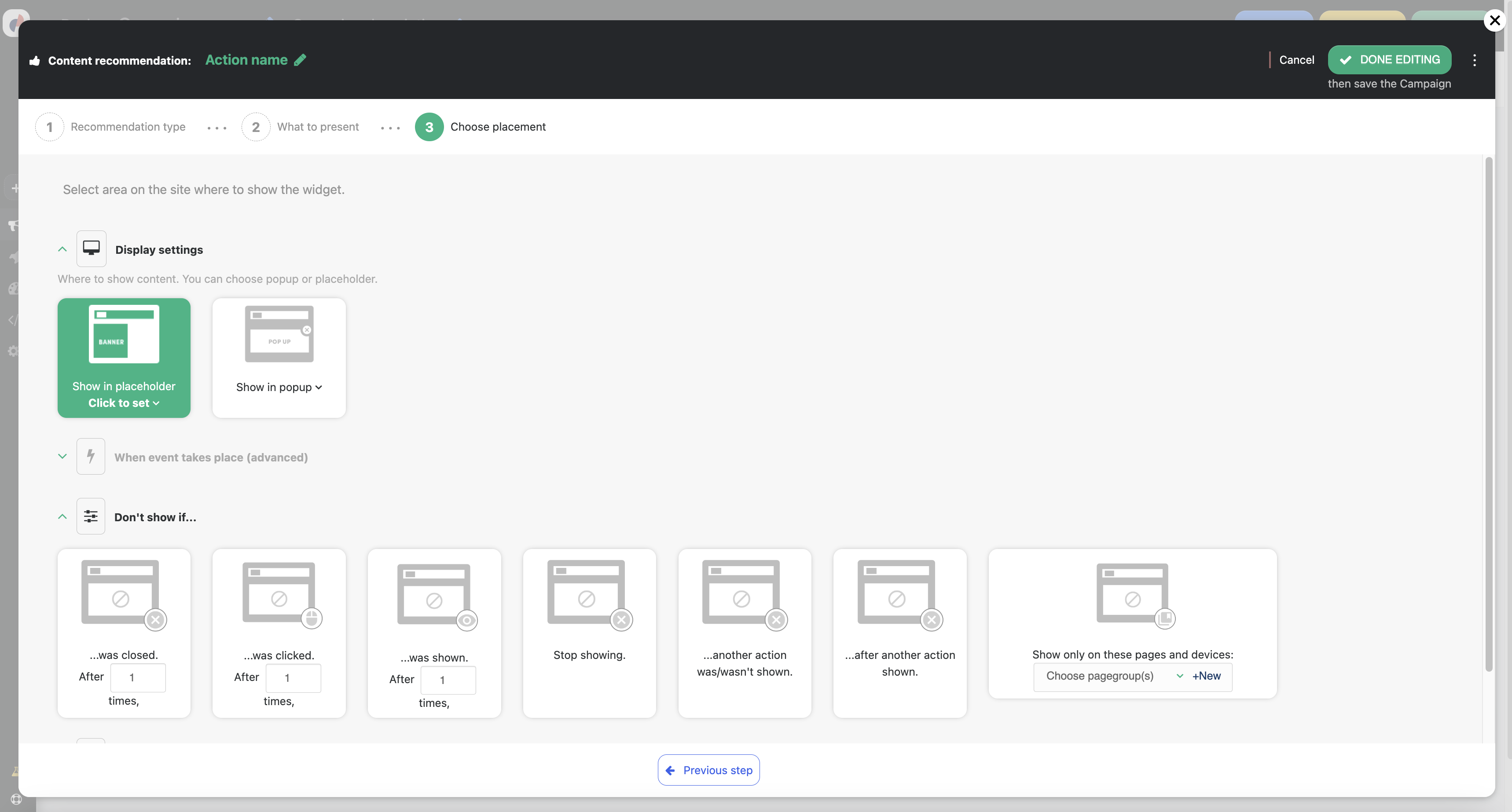Personyze Product Recommendations Action Guide
The Product Recommendations action in Personyze enables you to dynamically insert personalized product recommendations content blocks into your site based on user transactions, behavior, CRM data, or context. These can include product listings, article suggestions, category-based blocks, or custom feeds.
Overview
This action is commonly used for:
- Suggesting products based on browsing or purchase history
- Recommending articles or blog posts based on interest
- Displaying recently viewed or trending items
- Cross-selling and upselling related products
Where to Use It
You can insert recommendations into:
- Popups: For exit-intent or mid-journey engagement
- Banners: For promotions or homepage personalization
- Page Embeds: Using placeholders or native HTML selectors to inject inline content
Step 1: Choose Recommendation Source
Start by selecting the content feed or product feed that powers the recommendation logic. You can choose from:
- Your connected product catalog (e.g., Shopify, WooCommerce, custom CSV/XML)
- Content feeds (blog posts, articles, etc.)
- API or dynamic data source

Recommendation algorithms include:
- Most viewed
- Recently viewed
- Frequently bought together
- Similar products
- Trending now
- User history-based (AI-driven)

Step 2: Select Layout & Template
Personyze provides various templates to present your recommendations:
- Grid layout (2, 3, or 4 items per row)
- Slider/carousel
- Single item card

Each template can be customized using HTML/CSS and includes fields like:
- Product image
- Title or name
- Price or label
- “Add to cart” or “Read more” button
Step 3: Placement Settings
Decide where and how the block should appear:
- Placeholder (Inline Embed): Insert into a div or selector on the page
- Popup: Overlay the recommendations in a lightbox-style popup
- Banner: Display as a horizontal or full-width strip on the page

You can configure advanced display conditions like:
- Show after scrolling X%
- Show only on product/category pages
- Hide if already clicked or shown recently

Step 4: Targeting Logic
Use the Campaign Targeting tab to define who sees the recommendations. This can include:
- User segments (new vs. returning, location, CRM fields)
- Behavioral triggers (pages viewed, cart contents, visit depth)
- Device and time-based logic
Example: Show “Related Products” block only on product pages after 30 seconds of inactivity.
Step 5: Reporting and Analytics
Enable the Google Analytics Reporting checkbox to send impressions and clicks as events.
You can also track internal metrics inside Personyze’s dashboard such as:
- Widget impressions
- Clicks and CTR
- Conversion assists
Best Practices
- Use eye-catching visuals but avoid overloading the page with too many items
- Keep titles short and use consistent image sizes
- Test layouts with A/B variants to optimize click-through rates
- Prioritize relevance—recommend fewer but highly targeted items
Resources
If you need help creating a specific layout or feed filter, contact support or request a ready-made template.
